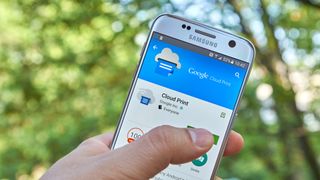Users left distraught as Google Cloud Print set to bite the dust
Much-loved service will be deprecated on December 31

Google Cloud Print will be no longer be supported from the end of the year. In an easily-missed update, Google announced that the service would be deprecated on December 31, 2020, which could come as a significant blow to Chrome OS users.
Google Cloud Print was first launched in 2010, but failed to ever get out of the beta testing stage. Nevertheless, it had its fair share of fans, who praised its ease-of-use, making printing available from any device running the Chrome browser. Users of Google’s own Chrome OS certainly enjoyed it as it often helped navigate some compatibility issues.
Fans of the service now have less than a month to find a new way of printing their documents. Google recommends that users “find an alternative print solution with [their] respective platform's printing infrastructure” before the end of the year.
- We've put together a list of the best all-in-one printers
- These are the best SMB printers on the market
- Also, check out our roundup of the best home printers
Searching for alternatives
For home or business users that have been taken by surprise by the announcement, now is the time to start exploring alternative printing arrangements.
Fortunately, Chrome OS has its own native printing solutions for Wi-Fi, CUPS, and local printing devices. Microsoft also launched its own Universal Print service earlier this year, while HP has its own cloud-based print offering.
Other options that could be worth exploring may be found in Google Chrome’s collection of extensions. Plug-ins like EveryonePrint, may not have a major name like Google behind them, but they will be working hard to capture more market share by attracting former Google Cloud Print users.
- Also, see our WFH guide - everything you need to know about working remotely
Via ZDNet
Are you a pro? Subscribe to our newsletter
Sign up to the TechRadar Pro newsletter to get all the top news, opinion, features and guidance your business needs to succeed!
Barclay has been writing about technology for a decade, starting out as a freelancer with ITProPortal covering everything from London’s start-up scene to comparisons of the best cloud storage services. After that, he spent some time as the managing editor of an online outlet focusing on cloud computing, furthering his interest in virtualization, Big Data, and the Internet of Things.
Most Popular


